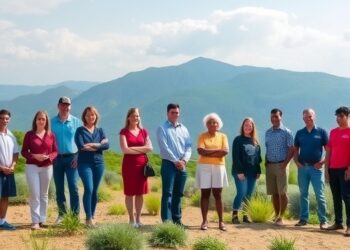In a Policy Forum, Brian Prest and colleagues discuss how new regulatory guidelines from the U.S. Office of Management and Budget (OMB), known as Circular A-4, could impact the social cost of carbon (SCC). The new equity weighting approach recommended by the OMB, they say, leads to a dramatic increase in SCC estimates, and thus requires careful dialogue and discussion. The social cost of carbon is an estimate of the economic damage caused by emitting an additional ton of carbon dioxide into the atmosphere. It helps guide decisions about balancing the costs of reducing emissions with the benefits of mitigating climate change. Traditionally, the SCC is influenced by the discount rate, which determines how future versus current economic impacts are valued. However, a new method called “equity weighting” that places a greater weight on benefits and costs affecting low-income groups has been introduced. Using the Greenhouse Gas Impact Value Estimator (GIVE) model – one of the three models used by the Environmental Protection Agency (EPA) to assess the impact of equity weighting on SCC estimates – Prest et al. show that this approach, which was proposed in 2023, increases estimates by nearly a factor of eight. According to the authors, this is because it gives more weight to the impact on poorer populations, who are more vulnerable to climate change. These new guidelines also lowered the discount rate, which results in an even greater SCC. While these policy changes reflect a shift towards considering the ethical implications of climate policies, Prest et al. argue that they have major implications for cost-benefit analyses. “Given its newfound importance,” say the authors, “the proper role of distributional weighting warrants careful and judicious dialogue in the scientific and policy communities.”
In a Policy Forum, Brian Prest and colleagues discuss how new regulatory guidelines from the U.S. Office of Management and Budget (OMB), known as Circular A-4, could impact the social cost of carbon (SCC). The new equity weighting approach recommended by the OMB, they say, leads to a dramatic increase in SCC estimates, and thus requires careful dialogue and discussion. The social cost of carbon is an estimate of the economic damage caused by emitting an additional ton of carbon dioxide into the atmosphere. It helps guide decisions about balancing the costs of reducing emissions with the benefits of mitigating climate change. Traditionally, the SCC is influenced by the discount rate, which determines how future versus current economic impacts are valued. However, a new method called “equity weighting” that places a greater weight on benefits and costs affecting low-income groups has been introduced. Using the Greenhouse Gas Impact Value Estimator (GIVE) model – one of the three models used by the Environmental Protection Agency (EPA) to assess the impact of equity weighting on SCC estimates – Prest et al. show that this approach, which was proposed in 2023, increases estimates by nearly a factor of eight. According to the authors, this is because it gives more weight to the impact on poorer populations, who are more vulnerable to climate change. These new guidelines also lowered the discount rate, which results in an even greater SCC. While these policy changes reflect a shift towards considering the ethical implications of climate policies, Prest et al. argue that they have major implications for cost-benefit analyses. “Given its newfound importance,” say the authors, “the proper role of distributional weighting warrants careful and judicious dialogue in the scientific and policy communities.”
Journal
Science
Article Title
Equity weighting increases the social cost of carbon
Article Publication Date
16-Aug-2024




